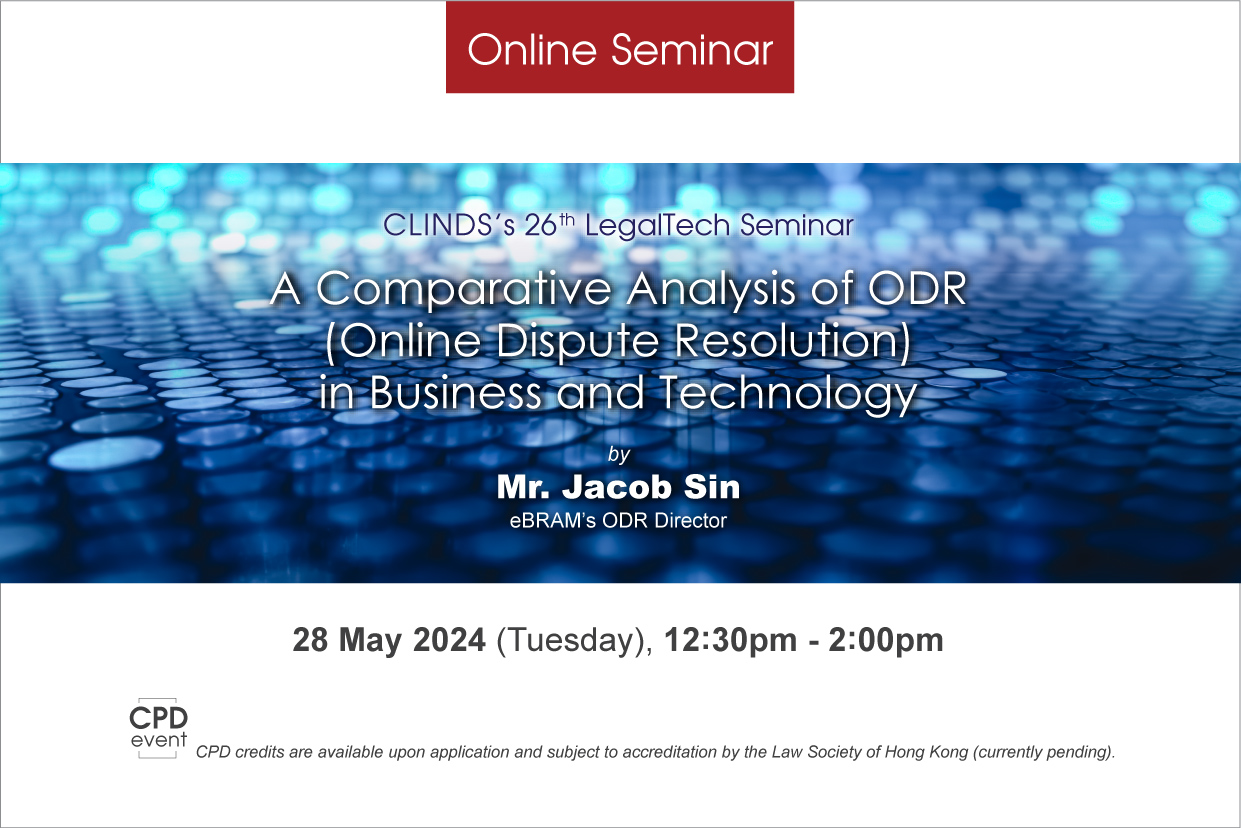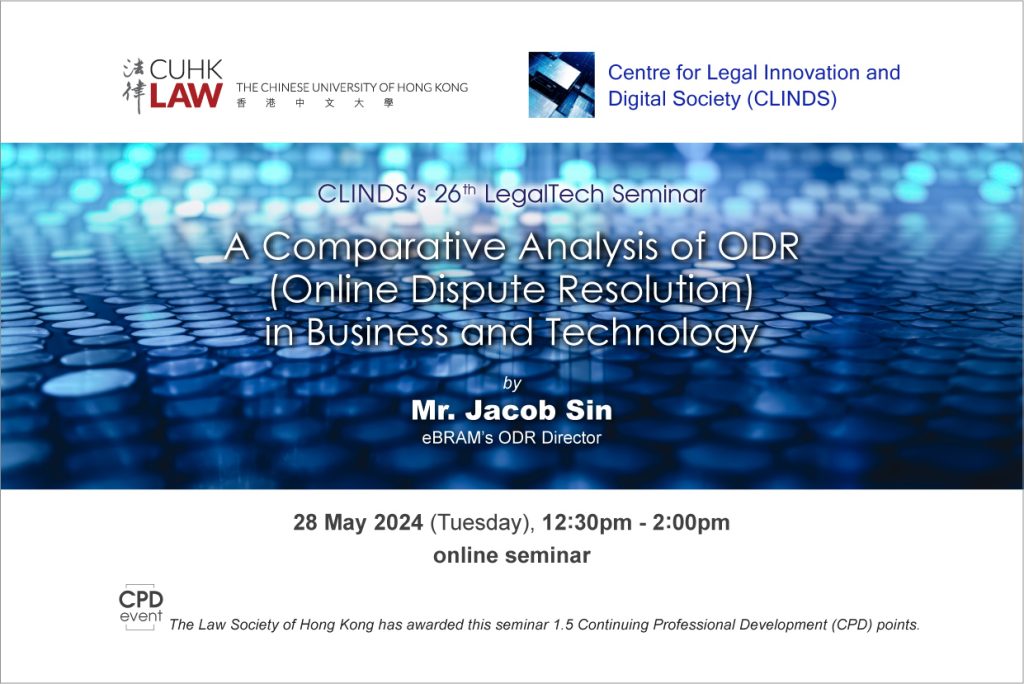ODR means Online Dispute Resolution, but the definition of the term is not settled in the industry. Multiple mechanisms for dispute resolution have been designated as ODR but they differ in terms of the scope of practical application, potential target users and legal efficacy. Some types of ODR build on existing legal foundations while others have taken atypical and less time-tested approaches. Some ODR mechanisms are more generally applicable while others are only effective when used in certain environments. This may have implications in terms of the types of disputes that can utilise the dispute resolution mechanism and the enforceability of the outcomes.
This online seminar will juxtapose several of the more representative ODR models to better illustrate the possibilities, applicability, strength and weaknesses of each method, so that lawyers might be better equipped to advise business clients, and businesses will be more informed of the available options.
In particular, arbitration based ODR systems offer the traditional flexibility, confidentiality and efficacy found in arbitration, but with less of the complexity found in certain logistical aspects of arbitration. For businesses looking to generally handle disputes with yet-to-be-specified issues, early adoption of arbitration rules which provide for the use of ODR systems might be a sensible option to give future parties to the dispute the greatest degree of flexibility in case a dispute does arise.
The following questions are addressed:
- What are some of the more representative examples of dispute resolution mechanisms that have been designated as ODR?
- How does the nature of different types of ODR mechanisms affect applicability and enforceability?
- How does an arbitration based ODR system work?
- What are the advantages and drawbacks of an arbitration based ODR system?
About the Speaker:
Jacob is the ODR Director of eBRAM International Online Dispute Resolution Centre Limited. He coordinates efforts at eBRAM to make dispute resolution more accessible to all by drawing upon his experience in ADR (alternative dispute resolution) and his knowledge in technology. Prior to joining eBRAM, Jacob was a member of a leading international law firm for seven years. He was part of its international arbitration practice. He was also a core member of its Digital Law Group. Jacob read law at the City University of Hong Kong and is a Hong Kong-qualified solicitor, currently non-practising.
The Law Society of Hong Kong has awarded this seminar 1.5 Continuing Professional Development (CPD) points.


0 Comments